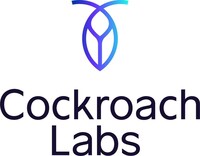
Cockroach Labs Shifts from Open Core to Single Enterprise Model

(Anatolir/Shutterstock)
Cockroach Labs Inc., the company behind the distributed SQL database CockroachDB, is changing its licensing model to better align with the evolving needs of its customer base.
The new licensing strategy involves consolidating the self-hosted version of CockroachDB under a single license model that the company is calling CockroachDB Software License.
Cockroach Labs changed its licensing model five years ago when it moved away from an open-source model. With the release of its latest version of CockroachDB in November this year, the company will retire its free Core offering, which was available to users with self-hosted deployments.
Instead, Cockroach Labs is introducing a new Enterprise licensing model that will require all companies with more than $10 million in annual revenue to pay a fee based on the number of CPUs in their server systems where the database is hosted.
The same enterprise version with the full breadth of CockroachDB capabilities will be available to companies below the revenue threshold at no cost. The new model will also remain free for students, individual developers, and academic researchers.
According to CEO Spencer Kimball, the new model will benefit smaller companies by granting them access to the tools and capabilities they need, while larger enterprises will have to pay up.
The licensing change was motivated by how Cockroach Labs’ two primary customer segments, startups, and large-scale enterprises, utilize the service.
“First, startups and other small businesses have often shown a desire to use Enterprise features not available in Core. And second, a growing number of scaled businesses are compromising on using the full capabilities of CockroachDB, eschewing the Enterprise license for free usage of Core,” said Kimball in a blog post.
Kimball is confident that Cockroach Labs’ investment in smaller companies will yield returns. He expects some of these companies to grow above the revenue threshold and start using the enterprise-grade product.
Starting this November, customers can access the new self-service Enterprise tier for 30 days for free, including community support. If their annual revenue is above the threshold, they will have to start paying the license fee.
Interestingly, the revenue threshold will be self-attesting, which means customers won’t have to prove their company revenues to CockRoach Labs. Kimball believes that CockroachDB has now crossed the threshold in terms of capability and reliability, and larger companies must pay to allow CockRoach Labs to continue growing and supporting the customers.
Kimball explains that the new licensing model will solve the problem of startups needing enterprise features but not being able to afford them. It will also help address the situation where large businesses compromised their use of CockroachDB just to save money by using the free version.
Cockroach Labs was founded in 2019 by Ex-Google employees Kimball, Peter Mattis, and Ben Darnell. The founders quickly raised a seed round to launch the public beta version of CockroachDB. Since then, the company has raised more than $600 million at a valuation of $5 billion.
The key to success for CockroachDB lies in its distributed architecture, which allows for scalability, data resilience, and high performance. For developers, it makes managing data across systems easier and keeps things running smoothly during all manners of outages. For large organizations, it scales effortlessly with growing demand, ensuring reliable performance and maintaining uptime without complex changes.
Cockroach Labs’ shift from an open-source model in 2019 to a proprietary license structure has been viewed as a significant departure from its original open-source ethos by industry observers. While the move is not unexpected, it underscores the risks associated with open-source projects shifting away from their foundational principles.
This trend can lead to diminished open-source community involvement and contributions. However, companies have to keep evolving to the changing demands of the market, and this move may help Cockroach Labs deliver a better overall experience to its customers.
Related Items
Cockroach Labs Unveils Speaker Lineup for RoachFest NYC 2024
Cockroach Entices High-End Legacy Workloads with v23.2




























